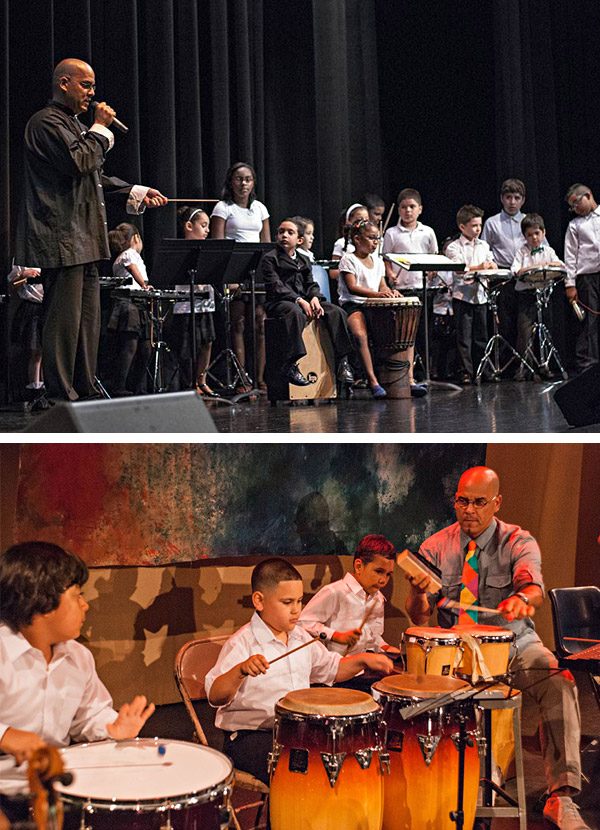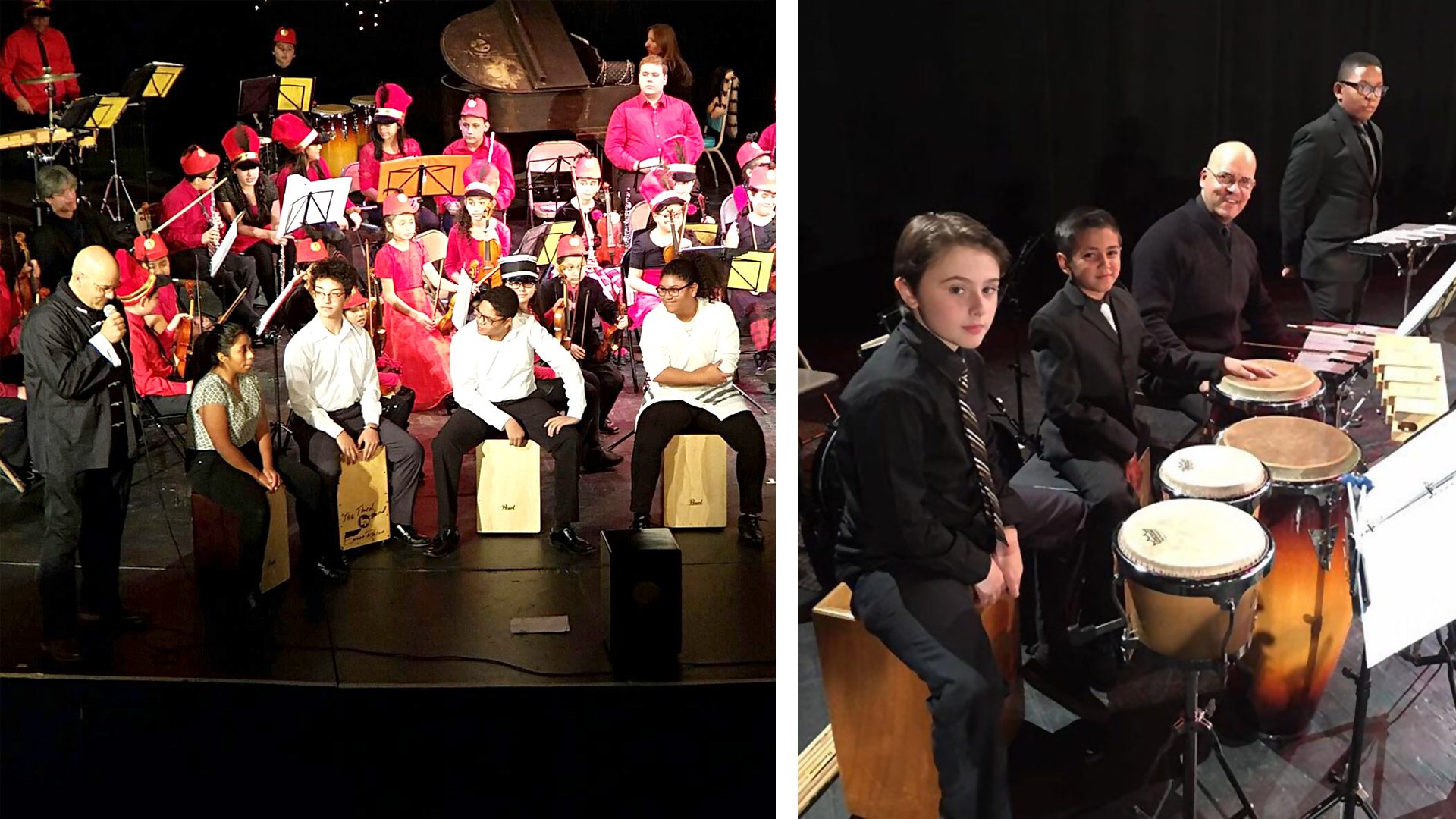TEACHING
"Music education is incredibly important"
Teaching
Music education is incredibly important, and I am fortunate to be able to participate in building students' music literacy in several ways.
The primary one is with UCMP.
My work with the United Children's Music Project is necessarily related to music education and in awakening the students' interest in culture through music education, where they learn concepts from other cultures within the framework of a symphony orchestra, in this specific case. Working with a classical orchestra, I strive to bring a different perspective to the percussionists than they might otherwise get, a perspective based on my relationship with rhythm and many hours of performing in front of an audience. I also have the privilege of introducing percussion concepts to orchestra students and broadening their horizons through body percussion, improvisation, and listening exercises.
My fundamental way of teaching is always from the cultural perspective of music and its practical applications.

Teaching Philosophy
As a teacher, my goal is to perpetuate the joy of performing music. Although my specific skills have been honed in the world of percussion, I strive to always remind students that they are musicians first, and percussionists second - the instruments and tools we use are means to an end and are not the end in themselves. My goal is to help students make beautiful music, without qualifications or instrument limitations, broaden their musical horizons, and push them to be better than they thought they could be. I also want them to be able to think critically about why they may (or may not) find something aesthetically and aurally pleasing, either in their performances or in the concerts of others. I want them, in turn, to use these two skills to foster their love of music, and to use their interpretive or educational skills to foster it in others.
I always teach them from the music they like, and this has always worked, because I bring them closer to their world, and they feel motivated and very interested in learning.
To develop these skills, it is essential to emphasize the student's responsibility for his or her learning. I expect students to prepare musically to the best of their ability, and to arrive on time and with the necessary instruments already prepared and ready to play. I encourage students to ask questions about anything they don't understand or are curious about. I, for one, teach by asking questions, "What did you like about what you just played?" "What do you think you could have done better?" "Why did you make that choice?"
Although the technique is extremely important (especially at the beginning level) and will be emphasized, my main focus is always on sound: this importance was imparted to me during my undergraduate degree, and I have appreciated it ever since. Even when practicing technical exercises, always ask yourself, "How does it sound? Am I happy with the tone I'm producing? If not, why not?" Many problems with technique can be illuminated when you start with these questions. I also recognize that the technical solutions that have worked for me may not be right for all of my students. I am open to a variety of approaches, both technically and musically if they serve the music and the students' interests.
I realize that all students learn slightly differently and so I strive to quickly understand what the best approach is for a particular individual. It may be to keep a lesson very structured and provide direct and concise information; or it may be to structure lessons as discussions, to encourage more active participation. I also strive to make sure that I don't ask anything of students that seems unreasonable to me. I make every effort to be available outside of class hours, including open lines of communication via phone, email, and social media.
To that end, I encourage students to be as musically well-rounded as possible. This means not only knowing basic theory, harmony and analysis, but actively incorporating it as applicable in preparation for performance. The theory is not something extra you learn when learning music: it is music! I also encourage the exploration of repertoire outside of the standard canon at any level.
Private Lessons
Enildo now offers online lessons in the privacy of your own studio! Classes are taught via webcam, and you can enroll anywhere an internet connection is available! - All classes are taught through the Zoom application.
Many students prefer online lessons for the convenience and ability to play on their own drums. Online lessons are not only affordable and convenient, but they are also very flexible. Lessons can be arranged to fit any schedule!
Brief email contact will be set up to discuss goals and practice areas.
After this, payments can be made through Pay Pal.
All transactions are secured by Pay Pal and all credit cards are accepted.
To begin the online classes, you will need:
- A computer or tablet device
- High-speed internet connection and webcam (most computers have built-in webcams!)

